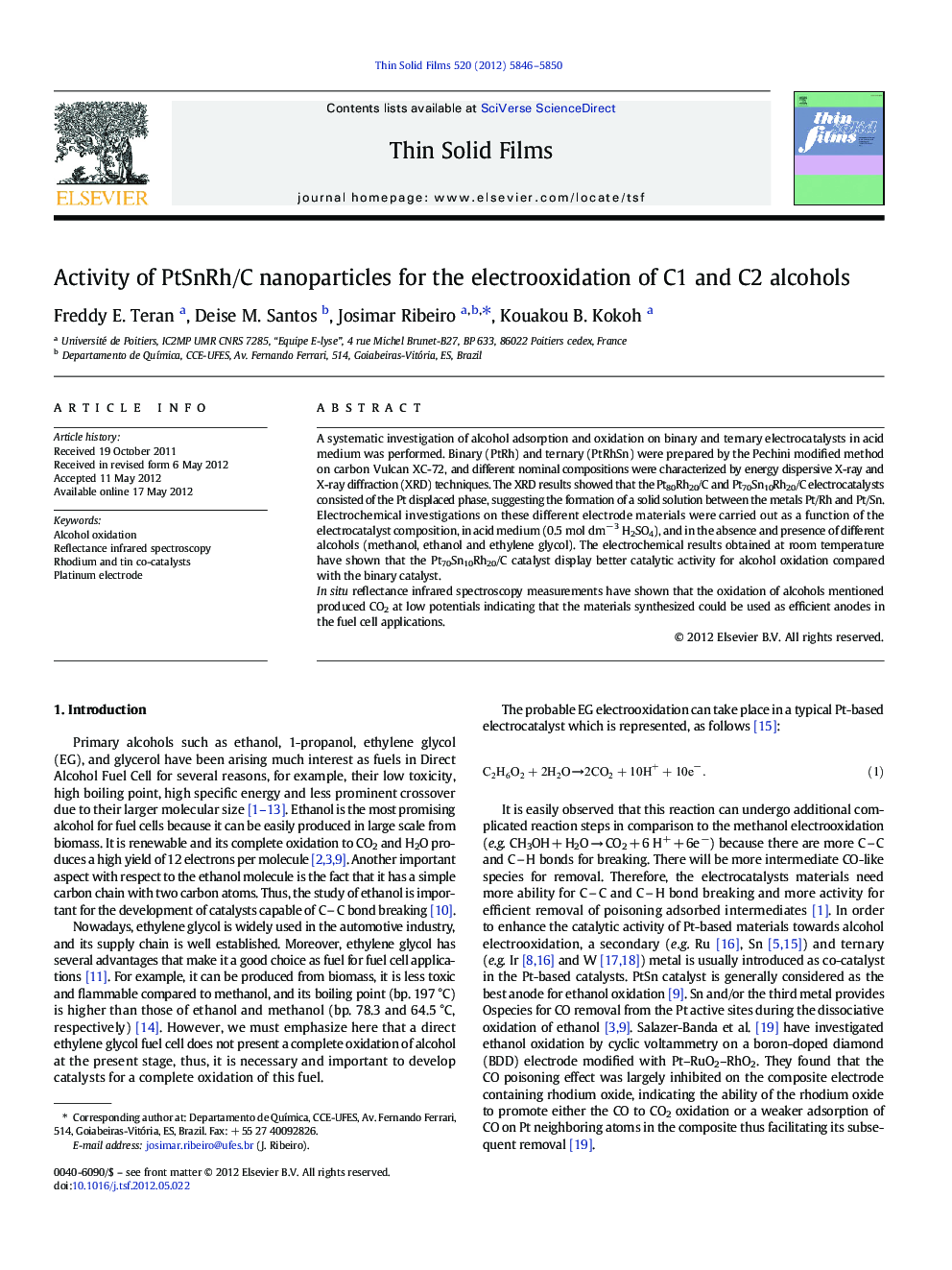| Article ID | Journal | Published Year | Pages | File Type |
|---|---|---|---|---|
| 1667112 | Thin Solid Films | 2012 | 5 Pages |
A systematic investigation of alcohol adsorption and oxidation on binary and ternary electrocatalysts in acid medium was performed. Binary (PtRh) and ternary (PtRhSn) were prepared by the Pechini modified method on carbon Vulcan XC-72, and different nominal compositions were characterized by energy dispersive X-ray and X-ray diffraction (XRD) techniques. The XRD results showed that the Pt80Rh20/C and Pt70Sn10Rh20/C electrocatalysts consisted of the Pt displaced phase, suggesting the formation of a solid solution between the metals Pt/Rh and Pt/Sn.Electrochemical investigations on these different electrode materials were carried out as a function of the electrocatalyst composition, in acid medium (0.5 mol dm− 3 H2SO4), and in the absence and presence of different alcohols (methanol, ethanol and ethylene glycol). The electrochemical results obtained at room temperature have shown that the Pt70Sn10Rh20/C catalyst display better catalytic activity for alcohol oxidation compared with the binary catalyst.In situ reflectance infrared spectroscopy measurements have shown that the oxidation of alcohols mentioned produced CO2 at low potentials indicating that the materials synthesized could be used as efficient anodes in the fuel cell applications.
► Pt-based catalysts were synthesized by thermal decomposition polymeric precursors. ► Pt70Sn10Rh20/C displays better catalytic activity for the oxidation of alcohols. ► The co-catalysts tin and rhodium promote the removal of CO to CO2 at low potentials. ► Ethylene glycol is oxidizing strongly to CO2 at low potentials. ► Pt70Sn10Rh20/C catalyst is an efficient anode material for a direct alcohol fuel cell.
